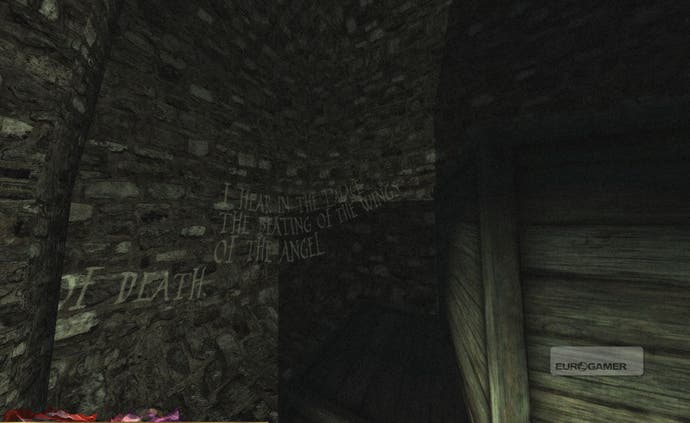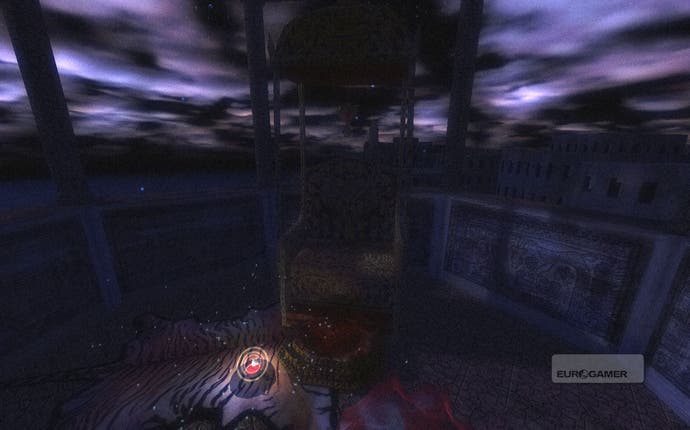Fatale: Exploring Salome
Hide the Salome.
This time, Tale of Tales leaves the world of grannies and wolves behind, and centres its gaze on the slight, rather gory tale of Salome. Salome is biblical morality at its crazy best: it's all about understated sex, overstated violence and the corrupting influence of women. Throw in a mention of how haggard Fergie is looking these days and something about how you can't trust minorities, and the whole thing could have been plucked from the pages of the Daily Mail.
The story is simple: young Salome dances before King Herod, her stepfather, and wins the right to make a request. Possibly as a favour to her mother, or, in Wilde's version, on which Fatale is loosely based, because her advances have been spurned, she asks for the head of John the Baptist to be brought to her on a plate. Even though he was expecting something more along the lines of a pony, Herod reluctantly grants her wish - probably because step-parents will do anything to gain a little favour with their new families.
Tale of Tales' approach to the subject breaks the story down into three sections. In the first, you're poor old John, down in the cistern, jumping around on crates while you contemplate how difficult life can be sometimes. Your instructions here are simply to wait, and, in case you've missed the point because all that playing games with enemies and target reticules and rechargeable shields has made you thick and impatient, there's even a YouTube-style timer running along the bottom of the screen to tell you just how long you have left.

After that, you waft upwards to the terrace above the cistern. Night has fallen, perhaps morning is on the way, and a handful of figures, frozen in various artful poses (character design is by Takayoshi Sato, of Silent Hill fame), are positioned about the place while you float around, drifting in and out of the scene, tasked with extinguishing any nearby light sources by moving in close, and then blocking them out with a strange, shifting black cloud.
The world is beautifully lit and filled with flickering nocturnal colour, but there's a definite impression - inevitably, given the imagery of your mission - that you're engaged in something rather dubious here, not to mention a creepier sensation, as fresh candles pop up behind you in the small, yet fiddly, space, that you aren't alone, and that an opposing force moves around nearby, slipping past just out of view, and re-arranging things when you aren't looking.
The peculiar blend of stillness and unease is only heightened by the soundtrack, in which a persistent chattering whisper fades in and out, reciting yet more lines from Wilde's play, and it all works to ensure that the heart of the game - the most gamelike part, in fact - is comfortably distant from anything I felt I'd ever played before.

Finally, with all the flames extinguished and - this is bizarre - once you've restarted Fatale, you'll find yourself in the epilogue, back in the courtyard under the full glare of daylight. You're now stuck, I'm guessing, in the role of Herod, while Salome performs her dance, and all you can do is zoom in and out of the action rather creepily, your inability to move about or do anything King-like suggesting that step-dad's just as much a victim of fate as John the Baptist himself.
Taken as a whole, Fatale may fill you with the sense that you're purposefully missing out on a lot of fairly important things: dialogue is reduced to distant echoes or slabs of dead text, the actual people you encounter are either silent or frozen, and the game's single moment of action is over blindingly fast. For the rest of the experience, you're left with a calculated feeling of disconnection, arriving after everything's happened, or long before the good stuff will kick off.
